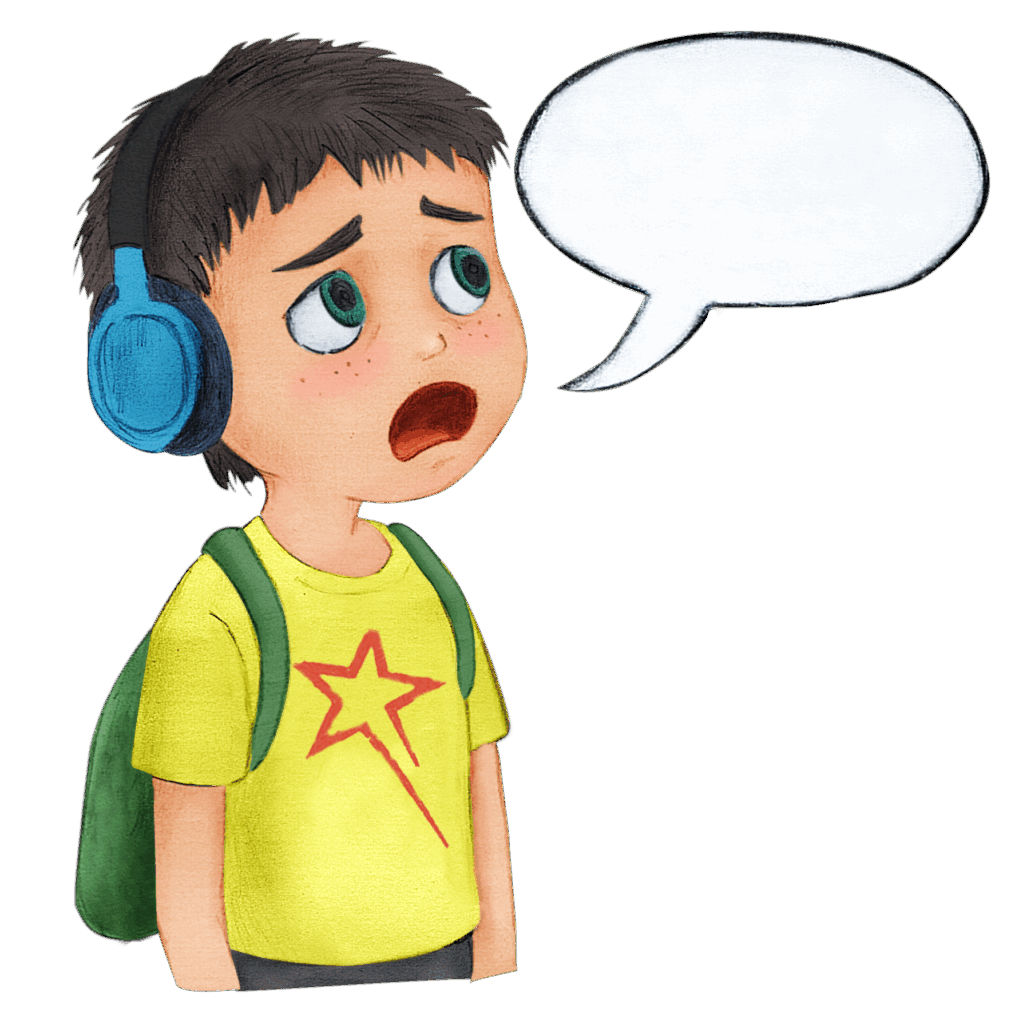
Childhood apraxia of speech (CAS) is a motor speech disorder. This means that your child knows what they want to say, but the motor movements they need to make to create speech don’t work properly. No-one really knows why. Their mouth works. Their tongue works, but the something goes wrong in the connections between the brain and the output of speech.
With Childhood Apraxia of Speech, your child may have:
- No speech
- A struggle to say words correctly
- Inconsistent speech – saying the same word differently each time
- Better “scripted” speech than “free-flowing” speech
- A frustration at not being able to correct their speech
- Fewer consonent and vowel sounds
- Difficulty saying the beginning sound of a word
- Other affected motor planning movements; such as eating, drinking and swallowing
Childhood Apraxia of Speech and Autism
It is estimated that approximately 25-25% of autistic individuals are non-speaking (non-verbal), yet, in most instances, no one understands why!
Why, for example, is my son autistic and he can’t talk, yet another child of the same age with an autism diagnosis can talk perfectly? No one can say.
In the UK, it is rare to receive a Childhood Apraxia of Speech diagnosis, especially for a child who is autistic and non-speaking. It’s almost unheard of.
Is Childhood Apraxia of Speech Underdiagnosed?
Jane Mullen, Speech Pathologist at Jane Mullen Speech Therapy Ltd told me “Until I read your story about your son Joshua’s dual diagnosis of “Suspected Childhood Apraxia of Speech” and “autism” I hadn’t really thought about it before. How maybe we should be pushing for a speech diagnosis in children who are non-speaking and autistic.”
“It’s difficult to diagnose children who are non-speaking and who have unreliable speech because the the diagnosis sessions are so demanding for them – even children who talk struggle with sessions,” Jane continues. “You need to repeat sounds multiple times, follow instructions, and engage in adult-led activities for a minimum of 15 minutes.”
“Typically, if a non-speaking, autistic child in the UK does receive a diagnosis for their speech, it is labelled as a “Speech Sounds Disorder”, Jane says. “Clinicians are actively encouraged to avoid over-diagnosing Childhood Apraxia of Speech because it is assumed to be so rare.
What if we are missing something?
In my discussion with Jane, she says “What is we could faciliate a speech diagnosis for every child who is autistic and non-speaking to enable them to receive the personalised support they need to try and talk?”
“What if “autism” becomes the “umbrella” diagnosis? And underneath that – there is a speech diagnosis too – alongside any other medical diagnoses. Wouldn’t that be amazing!” she enthuses “I would love to see that happen in the next 5-10 years with a programme in place to support it.”
What does the RCSLT say about CAS?
In 2024, The Royal College of Speech and Language Therapists (RCSLT) produced a Position Paper on Childhood Apraxia of Speech.
They confirm that “Childhood Apraxia of Speech (CAS) is a rare motor speech disorder which reduces the intelligibility of speech.”
More importantly, they outline how “CAS is present from birth and will not resolve without specialist speech and language therapy intervention.”
All the more reason to ensure that every child who is non-speaking receives a separate diagnosis for their speech disorder. Because if it is CAS, the sooner they start speech therapy, the better.
Access the full RCSLT Position Paper on Childhood Apraxia of Speech here.
Childhood Apraxia of Speech is rare – with a diagnosis rate of 0.01% of children.
